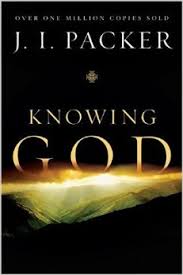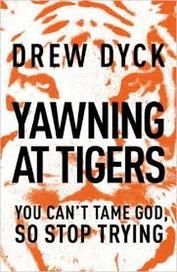What is Moralistic Therapeutic Deism? And How Does it Stack Up Against Biblical Christianity?5/10/2016 Every now and then, a new word or phrase is coined that takes on a certain life of its own. Sometimes, the word or phrase catches on because of its novelty or popular appeal - think of "yada yada yada," for example. Other words catch on because they accurately label something that people have been experiencing, but don't yet have a term for - hence the words "tween" and "emerging adult" are now commonplace. Other words in this category may not be as widely used as "tween" but they're nevertheless very important, because of how they accurately and succinctly describe something that seems to be going on around us, that we need words for. This is where I'd like to introduce you to one such term (if you've not heard of it already), Moralistic Therapeutic Deism. It's tough to overstate how important of a term "Moralistic Therapeutic Deism" (MTD) is. In an article on Moralistic Therapeutic Deism, sociologist Christian Smith suggests it is the "de facto dominant religion among contemporary teenagers in the United States" (p. 46). In other words, MTD is the default, often-unconsciously held, religious perspective/worldview among many teens and emerging adults. Even if you've never heard the "Moralistic Therapeutic Deism" label before, it's likely you've encountered one of the many ways MTD sends ripples out into many different areas of society. You may have experienced some variant of MTD in a religious service, a conversation with someone else, or in your own default perspective on things. If Moralistic Therapeutic Deism is so prevalent and is such a big deal, there are at least two important follow-up questions that readers of this post are invited to ask: What exactly is Moralistic Therapeutic Deism? And how does it stack up against biblical Christianity? Let's dig more deeply into each of these. What is Moralistic Therapeutic Deism (MTD)?Moralistic Therapeutic Deism is a term used (I think he coined it, actually) by Christian Smith in his 2005 book Soul Searching: The Religious and Spiritual Lives of American Teenagers (co-authored with Melinda Lundquist Denton). MTD is the summary term Smith uses to describe the popular-level religious faith of many American teens (and, Smith suggests, adults). The term is now generally accepted and widely used. Each word in the MTD label carries meaning:
Another sociologist and author, Hadyn Shaw, simplifies the technical language of MTD a bit as he tries to capture what it's getting at. Shaw's popular summary of MTD in a recent podcast is "Be good. Feel good. Live your life." Smith is careful to note that MTD is not a formal religion, and those adhere to this "religion"/worldview do so at various levels, and often fairly unconsciously. Significantly, Smith highlights the influence MTD is having on Christianity - not replacing it, but changing it from the inside out:
As Smith suggests in this most recent quote, Moralistic Therapeutic Deism is NOT the same as the historic Christian faith. Let's examine that claim a bit more closely in our next section. How does Moralistic Therapeutic Deism (MTD) stack up against biblical Christianity?Smith's claim that Moralistic Therapeutic Deism is a "quite different religious faith" may catch some people a little off guard. After all, isn't morality important in Christianity? (The answer is "Yes.") Is feeling good and being psychologically fulfilled - a certain therapeutic component - antithetical to Christianity? (That answer is "No.") And while deism probably isn't the best way to talk about God, doesn't deism at least acknowledge God exists? And isn't that a good starting point? This train of thought may lead some to hear MTD described and respond by shrugging their shoulders, thinking that MTD is simply a "softer" Christianity, better suited for our 21st century age. The danger, though, isn't that MTD is 100% false. The danger is that MTD latches onto a few Christian strands of teaching (morality, happiness, and God's existence, for e.g.), and then fills in the meaning of those terms with its own ideas. Nor is the danger ALL in what MTD wants to assert (though some of it is...); rather, the danger is in those Christian truths that MTD diminishes or ignores. Below I've briefly included a few areas where MTD is entirely out of proportion - diminishing certain truths and over-inflating others. 1. MTD proposes an incomplete view of morality.MTD's "emphasis" on morality completely misses important biblical teaching about morality. For example, MTD moralism fails to take sin seriously - sin's nature, its extent, its depths, and its consequences (check out Genesis 3; Jeremiah 2:11-13; Jeremiah 17:9; Romans 3:10-18; and Ephesians 2:1-3). MTD Morality also misses the the new heart and regeneration that Christianity offers. Morality isn't simply about "trying harder." As those who are dead in our sins (Ephesians 2:1-3), we need a new heart to energize and motivate our morality. Historic Christianity offers the categories by which to think about this; MTD doesn't. (Ephesians 2:4-10; cf also Ezekiel 36:24-27; Isaiah 64:6; Titus 3:5-8) Also, MTD ignores the "costly" morality we see in the Bible. In MTD, it seems self defines morality more than God does. Nor does the therapeutic thrust of MTD allow for the sacrificial morality we see so often in the Bible - a morality that denies self (Luke 9:23) and in humility valuing others above ourselves (Philippians 2:3-4). See also 1 Corinthians 6:9-20; Galatians 5:13-23; Ephesians 4:20-24; Titus 2:11-12 2. MTD proposes an elevated view of self.I've already highlighted how so much of the MTD framework is built around the idea of "self." This elevated view of self seems to leave little room for the Great Commandment (Matthew 22:36-40), and it doesn't seem to know what to do with Jesus' own example that we read about in Philippians 2:3-11: 3 Do nothing out of selfish ambition or vain conceit. Rather, in humility value others above yourselves, 4 not looking to your own interests but each of you to the interests of the others. 3. MTD only offers a diminished view of God.By elevating self, MTD also diminishes God to a distant, (mostly) disinterested deity. The Christian view of God, however, is often so much BIGGER than we think - not smaller. Rather than listing verses here, let me simply point the interested reader to a few good books that will cultivate a big view of God: ConclusionIn conclusion, historic Christianity offers a richer view of morality than MTD ever can, as historic Christianity gives us categories to understand our sinfulness and the new heart that can truly energize godly living.
Historic Christianity offers a more accurate view of self than MTD's "therapy." Humanity has the great privilege of being created by God uniquely in His image, and the great purpose of reflecting that image to creation, and being designed to find our fulfillment and the greatest good in the worship of God. And historic Christianity offers a better God than MTD ever can. Rather than a distant and disinterested God, Christianity teaches that God loves us so much that He sent His Son for us, that we can truly know - and be known by - the triune God.
10 Comments
5/14/2016 10:14:57 am
MTD is the theme of every Disney movie, I think. Everything is oriented around the self and pursuing your desires no matter what.
Reply
Tim Wiebe
5/17/2016 09:00:30 am
Grant,
Reply
Bruce
5/17/2016 06:55:40 am
I think Christianity and Church as lost some appeal with young people for multiple reasons : the religious right, they have friends who are gay that are criticized and not accepted by the church, the church seems to be anti science, the church seems to be interested in other things besides social justice issues. These at least are the things that I keep hearing about.
Reply
Tim Wiebe
5/17/2016 09:03:24 am
Bruce, Your comment echoes so much of Gabe Lyon's and Dave Kinnaman's book, _Unchristian: What a New Generation Really Thinks about Christianity_. I think following Lyons and Kinnaman's work is important - including their most recently (2016) follow up book, _Good Faith: Being a Christian When Society Thinks You're Irrelevant and Extreme_.
Reply
Hannah
2/25/2020 11:49:46 am
This was so well-written. Thank you so much for writing this!
Reply
Walter McKay Jr
11/25/2021 02:15:58 pm
Intellectualism is practiced mainly by anti-spiritual thinkers.
Reply
1/5/2024 06:56:05 am
I found this blog post to be an eye-opener on the concept of Moralistic Therapeutic Deism (MTD). It's fascinating how this belief system has become so prevalent in our society, often without people even realizing it. MTD seems to emphasize moral values, personal happiness, and a distant, accommodating deity.
Reply
1/8/2024 08:42:32 am
This discussion about Moralistic Therapeutic Deism and its comparison to Biblical Christianity is incredibly relevant in today's world. It's disheartening to see how MTD has become so prevalent in our society, often replacing genuine faith with a superficial, self-centered spirituality.
Reply
5/27/2024 04:40:06 am
Your ideas for the Moralistic Therapeutic Deism in Biblical Christianity are so helpful and there are many people who want to learn more on these topics to understand. Writing such a detail provide us great insight of the matter and we can learn what and how we should read it and understand it.
Reply
Leave a Reply. |
Tim WiebeChristian. Husband. Father. Pastor. Learner. Contributor. Reader. Categories
All
Archives
June 2024
|
© 2014-2024 | 11607 M Circle, Omaha NE, 68137 | www.thebrooksideinstitute.net





 RSS Feed
RSS Feed
